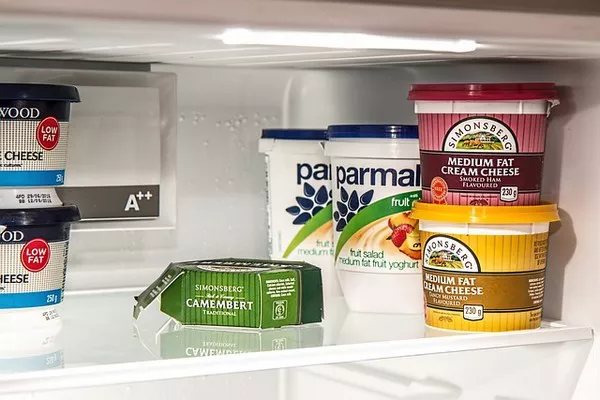In the realm of refrigeration systems, the choice of materials is critical to ensuring efficiency, durability, and performance. Among the various materials used in refrigeration, copper tubing stands out due to its numerous advantages. This article delves into the reasons why copper tubing is a preferred choice in refrigeration systems, exploring its properties, benefits, and applications.
The Properties of Copper Tubing
Copper has been a favored material in various industries for centuries, and its use in refrigeration systems is a testament to its superior qualities. Several inherent properties make copper tubing an ideal choice:
Thermal Conductivity: Copper boasts one of the highest thermal conductivities among metals. This property allows for efficient heat transfer, which is crucial in refrigeration systems where heat exchange plays a pivotal role. The ability of copper to conduct heat quickly and evenly ensures that refrigeration systems operate effectively and maintain optimal temperatures.
Corrosion Resistance: Copper’s resistance to corrosion makes it suitable for use in refrigeration systems exposed to various environmental conditions. Unlike some metals that degrade over time due to moisture or chemicals, copper maintains its integrity and functionality, reducing the need for frequent replacements and maintenance.
Ductility and Malleability: Copper is highly ductile and malleable, meaning it can be easily drawn into thin tubes and bent into various shapes without breaking. This flexibility is particularly valuable in refrigeration systems, where tubing often needs to navigate tight spaces and complex layouts.
Strength and Durability: Copper has a high tensile strength, making it durable enough to withstand the pressures involved in refrigeration cycles. This strength ensures that copper tubing can handle the mechanical stresses of the refrigeration system without deforming or rupturing.
Advantages of Copper Tubing in Refrigeration Systems
The properties of copper tubing translate into several key advantages for refrigeration systems:
Efficient Heat Transfer: The excellent thermal conductivity of copper ensures that heat is efficiently transferred between the refrigerant and the surrounding environment. This efficiency enhances the overall performance of the refrigeration system, allowing it to achieve and maintain desired temperatures with minimal energy consumption.
Long-Term Reliability: The corrosion resistance of copper tubing contributes to the long-term reliability of refrigeration systems. By resisting oxidation and degradation, copper tubing helps prevent leaks and maintains the system’s efficiency over its lifespan. This durability is especially important in commercial and industrial applications where system failure can lead to significant losses.
Ease of Installation: The ductility and malleability of copper tubing simplify the installation process. Copper tubes can be easily bent and shaped to fit specific configurations, reducing the need for additional fittings and connectors. This ease of installation not only speeds up the setup process but also minimizes potential points of failure.
Cost-Effectiveness: While copper tubing may have a higher initial cost compared to some alternatives, its longevity and low maintenance requirements often lead to cost savings over time. The reduced need for replacements and repairs, combined with the efficiency gains, make copper a cost-effective choice in the long run.
Applications of Copper Tubing in Refrigeration Systems
Copper tubing is employed in various types of refrigeration systems, each benefiting from its unique properties:
Residential Refrigeration: In household refrigerators and air conditioning units, copper tubing is used in the evaporator and condenser coils. The tubing’s ability to transfer heat efficiently ensures that these appliances operate effectively and provide consistent cooling performance.
Commercial Refrigeration: In commercial refrigeration systems, such as those found in supermarkets and restaurants, copper tubing is used in a range of applications including display cases, walk-in coolers, and freezer units. The reliability and durability of copper tubing are essential for maintaining the temperature control required in these environments.
Industrial Refrigeration: Industrial refrigeration systems, which are used in large-scale operations such as manufacturing and processing facilities, rely on copper tubing for its strength and efficiency. The ability of copper to handle high pressures and its resistance to harsh conditions make it suitable for demanding industrial applications.
HVAC Systems: Copper tubing is also widely used in HVAC (heating, ventilation, and air conditioning) systems. Its role in heat exchangers and cooling coils is crucial for the effective transfer of heat and maintenance of desired indoor climates.
Challenges and Considerations
While copper tubing offers numerous benefits, there are some challenges and considerations to be aware of:
Cost: Copper is generally more expensive than some alternative materials, such as aluminum. However, the long-term benefits of copper, including its durability and efficiency, often justify the initial investment.
Recycling: The environmental impact of copper mining and production is a consideration. However, copper is highly recyclable, and many refrigeration systems incorporate recycled copper, reducing the environmental footprint.
Compatibility: In some cases, copper may need to be used in conjunction with other materials to ensure compatibility with different refrigerants or system components. Proper design and engineering are required to address these compatibility issues.
See Also How to Choose the Best Refrigerant
Conclusion
Copper tubing plays a vital role in the efficiency, reliability, and longevity of refrigeration systems. Its superior thermal conductivity, corrosion resistance, and mechanical properties make it an ideal choice for a wide range of refrigeration applications. Despite some challenges, the benefits of copper tubing often outweigh the drawbacks, making it a preferred material for both residential and industrial refrigeration systems. As technology advances and demands evolve, copper’s role in refrigeration will likely continue to be integral, underscoring its importance in maintaining the performance and efficiency of modern cooling systems.

